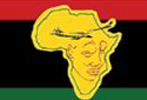Why we need to make climate action our daily duty.

“Karibu” is the Swahili word we say to mean welcome across the entire East African region. We share cultural norms, food and other ways of life. I grew up in Uganda’s Wakiso District and just like other East African countries, Uganda enjoys rainfall and sunshine throughout the year. We are blessed with fertile lands and home to Africa’s largest water body, the “Nalubaale,” (or what Europeans came to call Lake Victoria). From the leafy hills of Kampala, Kigali’s clean streets and Nairobi’s Uhuru Park’s urban green space experience, I can say we have much potential. As we are transitioning towards industrialized economies, agriculture and tourism still contribute a significant amount of our gross domestic product, more than other sectors combined. Natural reserves like Lake Victoria are responsible for the survival of over 40 million people in the region. But our rich forest cover is being depleted to benefit the illicit charcoal and timber trade.
Our survival is largely dependent on how we live and utilize the natural resources we have had since before colonialism. However, the charcoal and timber trade is causing disastrous damage to the climate, and now we are witnessing extreme weather events. This phenomenon demands an urgent response to achieve the resilience we need. By taking climate action, can Kenya put itself on a sustainable pathway to developing clean alternatives to power our economies?
A simple concrete step towards a different future is for governments to declare a climate emergency to accelerate the implementation of the global climate goals. Instead, our leaders are offering lip service to the problem and are failing to act fast enough. There is also no political will. Yoweri Museveni, my own president in Uganda, at the recent Blue Economy Conference said his government cannot take action on wetland encroachers because he needed votes. But we as citizens need resilient societies that are able to adapt and cope with a climate that is breaking down.
I believe collaborations are key to fighting climate disasters. As I write now, the entire region is under attack, as desert locusts devour everything green. With common problems, working together is the best solution. Hopefully this too will inspire collaborative solutions to other regional problems. Besides, Uganda and entire East African region experience the same extreme events, floods, droughts, landslides, failing crops and an extending desertification condition. We are all bound to take action beyond considering our national interest.
Today many people are excited about oil discoveries in Uganda’s Albertine region and northern Kenya. But it must be noted that these explorations pose nothing but danger to our environment, agricultural sector, health and entire livelihoods. Just the construction of the pipeline from Uganda through Tanzania is already causing noticeable biodiversity loss. Yet the entire energy sector is failing to address its devastating environmental impact. Yes, our economies need to be powered but not at the expense of our future.
As part of the Fridays for Future movement in Uganda, despite our ongoing studies, we have dedicated time to growing a strong movement which is demanding urgent action towards the climate crisis. For over a year now, we have aimed at mobilizing and rallying many other young people to join us. As East Africa’s largest youth movement, we’ve grown into a strong voice raising attention to solutions for the climate crisis, influencing policy and inspiring action. We are now a strong force of 50,000 young people spread across a network of five universities, 52 schools and the general public. We are working with other young people, like those in Sierra Leone, where the movement has from the start of 2020 engaged over 3,000 youth. The movement is visible in other countries like Nigeria and Kenya and it will keep growing.
We do this because, our countries have to get on a sustainable pathway. A climate crisis will continue to cripple our societies if we don’t take action. The future of a smartly developed East Africa will depend on the policies we formulate and the actions we take now. Our natural world is being degraded every day; we can’t just sit down and do nothing. Climate action must be our daily duty, let us #KeepMamaAfricaGreen.
As a Kikuyu proverb goes, “You must treat the earth well, it wasn’t given to you by your parents, it is loaned to you by your children.”

